The Proverbs of Hell 7/39: Sorbet
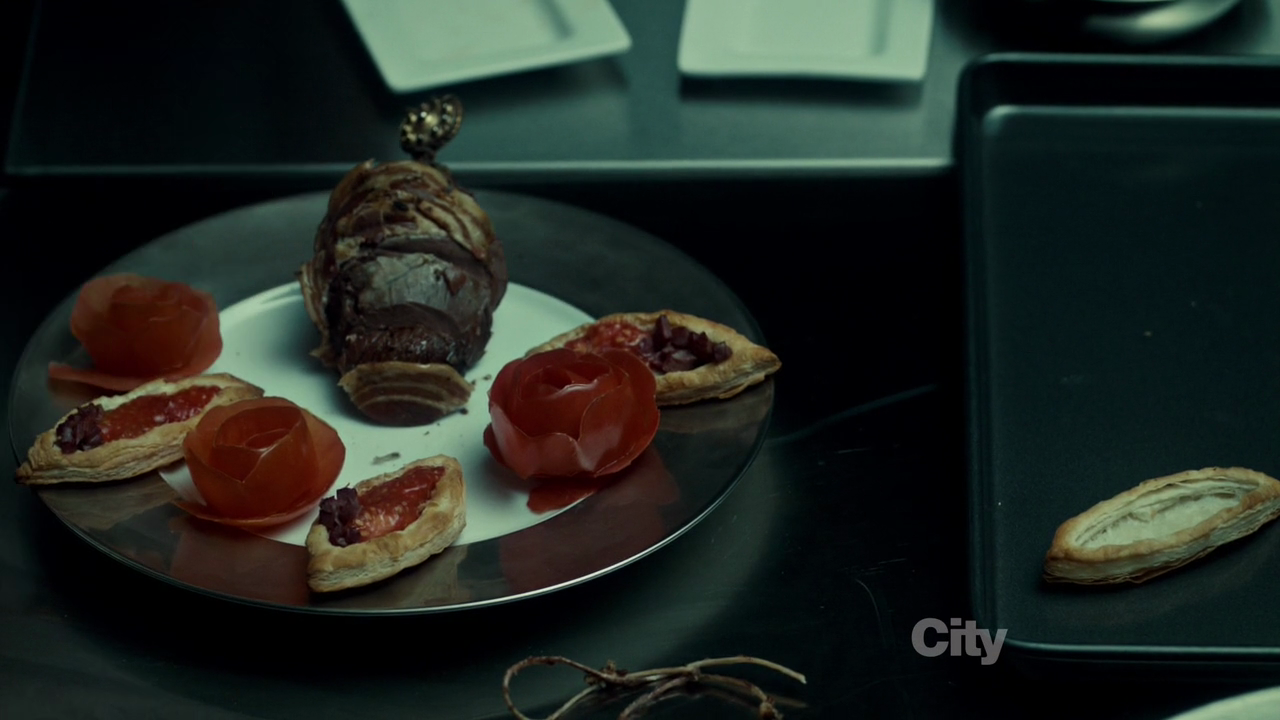 SORBET: A frozen dessert made of sweetened, flavored water. In this case, it seems meant to suggest a palate cleanser, resetting the meal after the extremes of “Entrée.”
SORBET: A frozen dessert made of sweetened, flavored water. In this case, it seems meant to suggest a palate cleanser, resetting the meal after the extremes of “Entrée.”
WILL GRAHAM: I use the term Sounders because it refers to a small group of pigs. That’s how he sees his victims. Not as people, not as prey. Pigs.
The particulars of what it means to see people as pigs is enormously vexed, and I can’t not gesture at my “Capitalist Pig” series of essays, the first two of which are focused specifically on this. Broadly, though, pigs are second only to monkeys as animals that symbolically reflect our own humanity back on us. They are also intimately connected with food – their two basic utilities to a culture are either as garbage disposal or as an exceedingly efficient food source. Much like the pig itself, every part of this dense nexus of meaning is used in the construction of the underlying metaphor here.
WILL GRAHAM: True to his established pattern, the Chesapeake Ripper has remained consistently theatrical.
“Theatrical” is an interesting description here, given that Hannibal’s medium is the fixed artistic tableau, as opposed to the visceral immediacy of live interaction. Indeed, “theatrical” is in a very real sense the one thing a killer-at-large cannot be, in that he must necessarily remain a tangible absence at the scene. Of course, Hannibal’s role is more as writer/director/demiurge than actor, and so his absence is arguably an organic part of the process, with his victims being the actors. (Compare with the previous “sounders” metaphor for humorous writerly commentary on actors.) Another interpretation, however, is that the tableaus are the negative space of the theater after the performance has happened – sets and props left behind after a performance that the police have already missed. This interpretation has the advantage of matching well with Will’s deductive gifts. A third reading, in which the theater is the ongoing public saga of fascination, would be supported by Freddie Lounds, and is at least what Hannibal is engaging in with Miriam. As usual, these interpretations, while contradictory, are not mutually exclusive.
This scene, which opens inside the singer’s body before zooming into Hannibal’s ear as the sound reaches it, is one of the show’s more charming demonstrations of viscerality to date. The real detail that makes the scene hilarious, however, is the fact that the concert is a benefit for hunger relief.
MRS. KOMEDA: I said properly. Means dinner and the show. Have you seen him cook? It’s an entire performance. He used to throw such exquisite dinner parties. You heard me. Used to.
HANNIBAL: I will again. Once inspiration strikes. I cannot force a feast. A feast must present itself.
MR. KOMEDA: It’s a dinner party, not a unicorn.
HANNIBAL: But the feast is life. You put the life in your belly and you live.
Hannibal’s claims here are interesting in light of the killing spree he goes on, which is focused on old grudges plucked from his reserve of recipe and business cards.

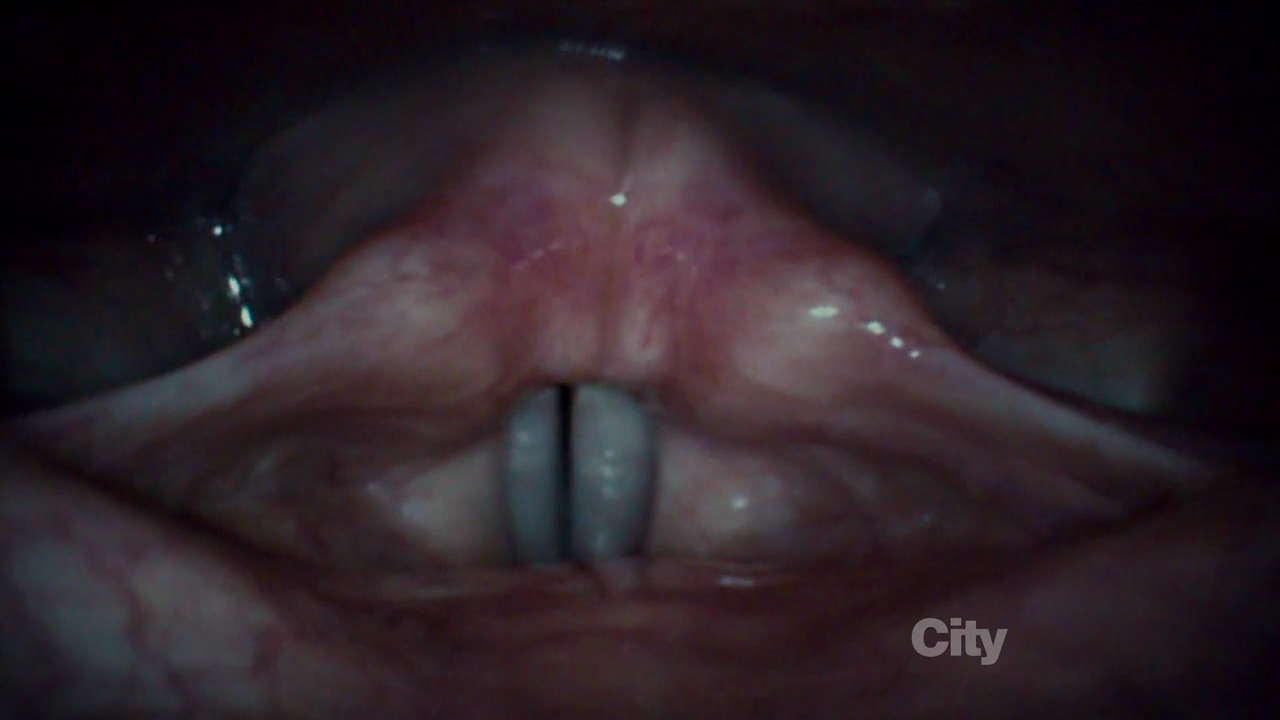
 ENTRÉE: With the episode titles in French, this does not carry the English meaning of “main course” per se, but rather refers to a transitional course between fish and meat dishes. In truth the meaning is double, flagging this episode’s status as a transitional one in the season and its status as the first one since “Aperitif” to be focused entirely on the arc plot.
ENTRÉE: With the episode titles in French, this does not carry the English meaning of “main course” per se, but rather refers to a transitional course between fish and meat dishes. In truth the meaning is double, flagging this episode’s status as a transitional one in the season and its status as the first one since “Aperitif” to be focused entirely on the arc plot.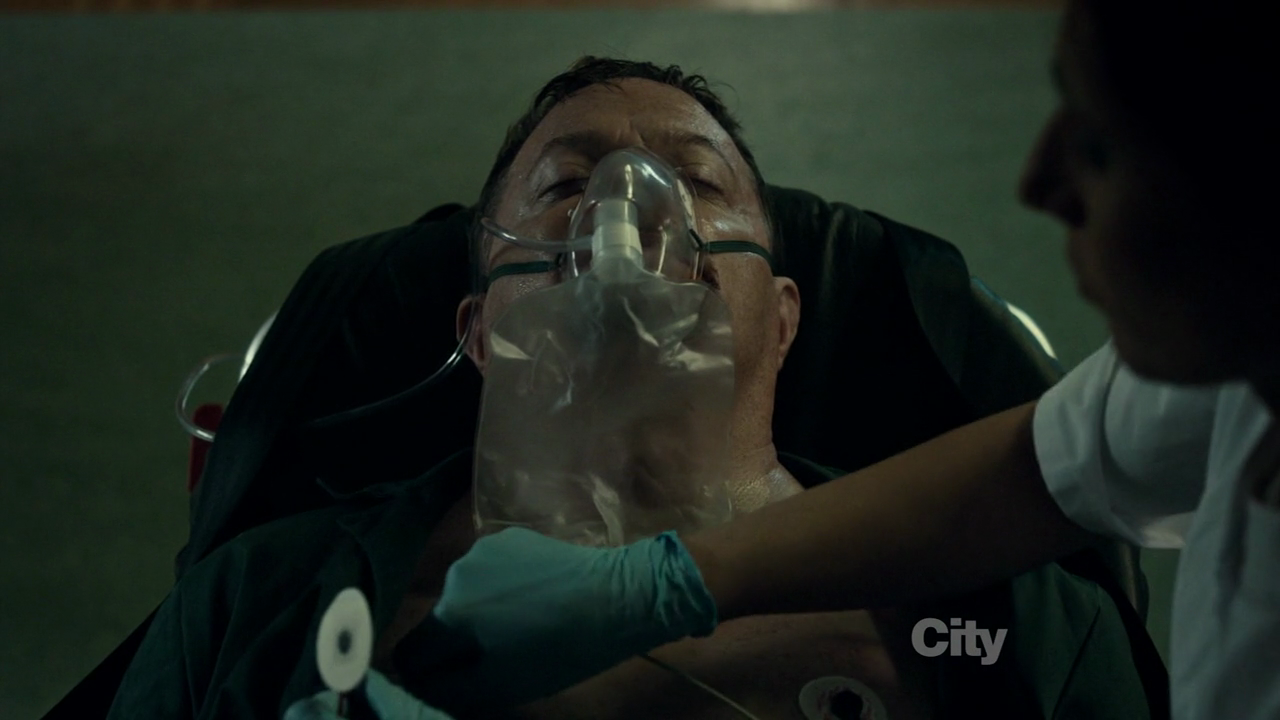
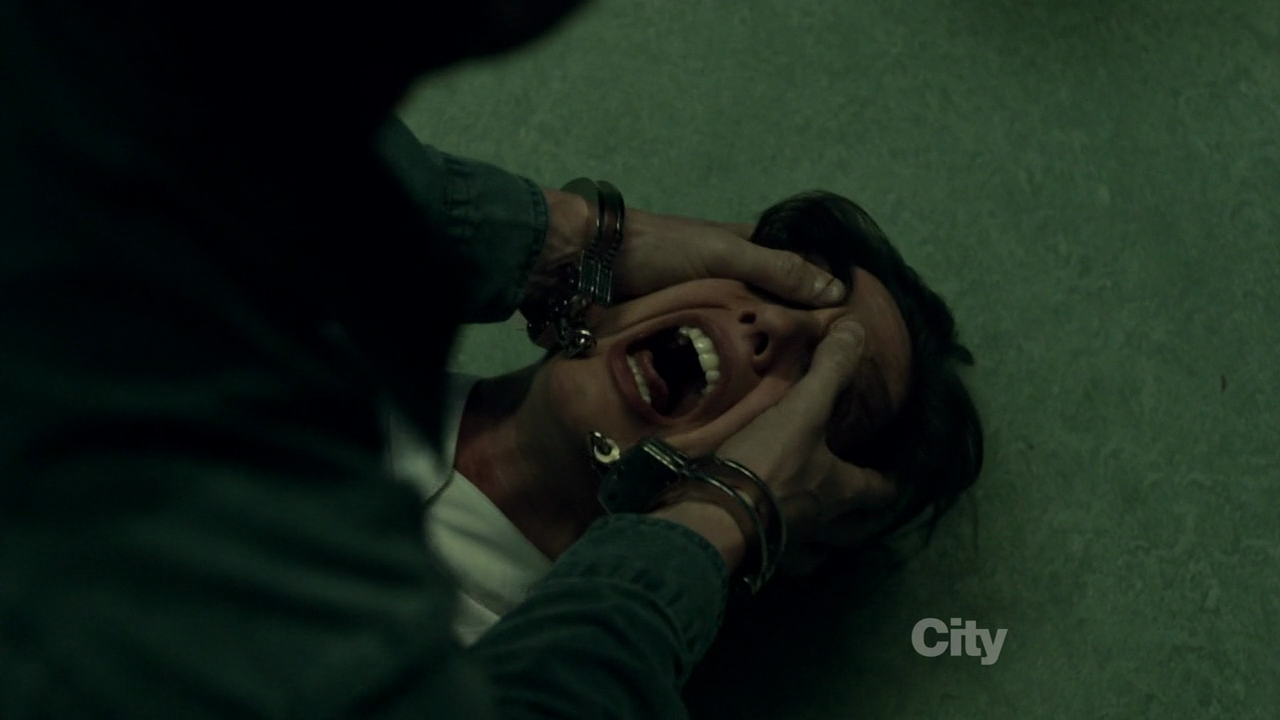
 COQUILLES: Coquilles are shells, referring either to shellfish like oysters or to casseroles served in a shell-shaped dish. The poetic meaning would involve something about how people are just shells for the higher angelic spirit within. The crass (and likely intended) meaning is a visual pun based on what happens when you flay wings off of someone’s back.
COQUILLES: Coquilles are shells, referring either to shellfish like oysters or to casseroles served in a shell-shaped dish. The poetic meaning would involve something about how people are just shells for the higher angelic spirit within. The crass (and likely intended) meaning is a visual pun based on what happens when you flay wings off of someone’s back.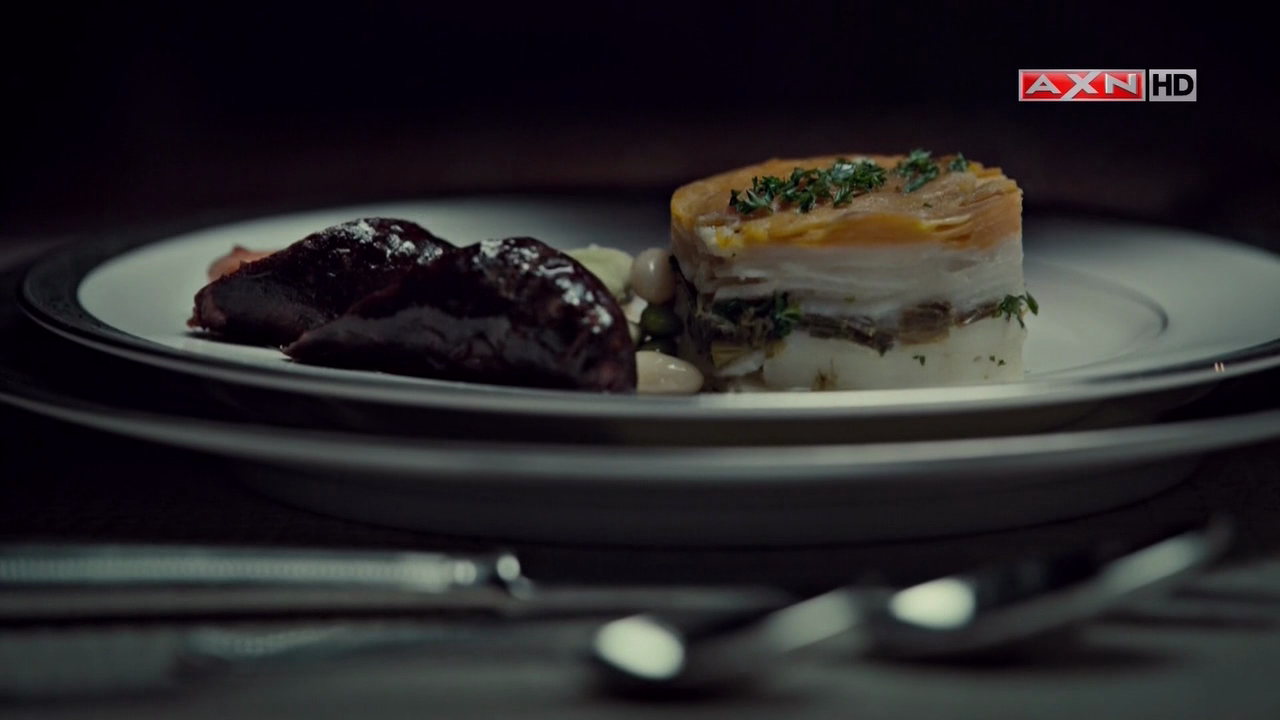 ŒEUF: One of the least nuanced titles (and indeed episodes) of the show, œuf simply means eggs, a straightforward reference to the episode’s themes of family and parentage.
ŒEUF: One of the least nuanced titles (and indeed episodes) of the show, œuf simply means eggs, a straightforward reference to the episode’s themes of family and parentage.